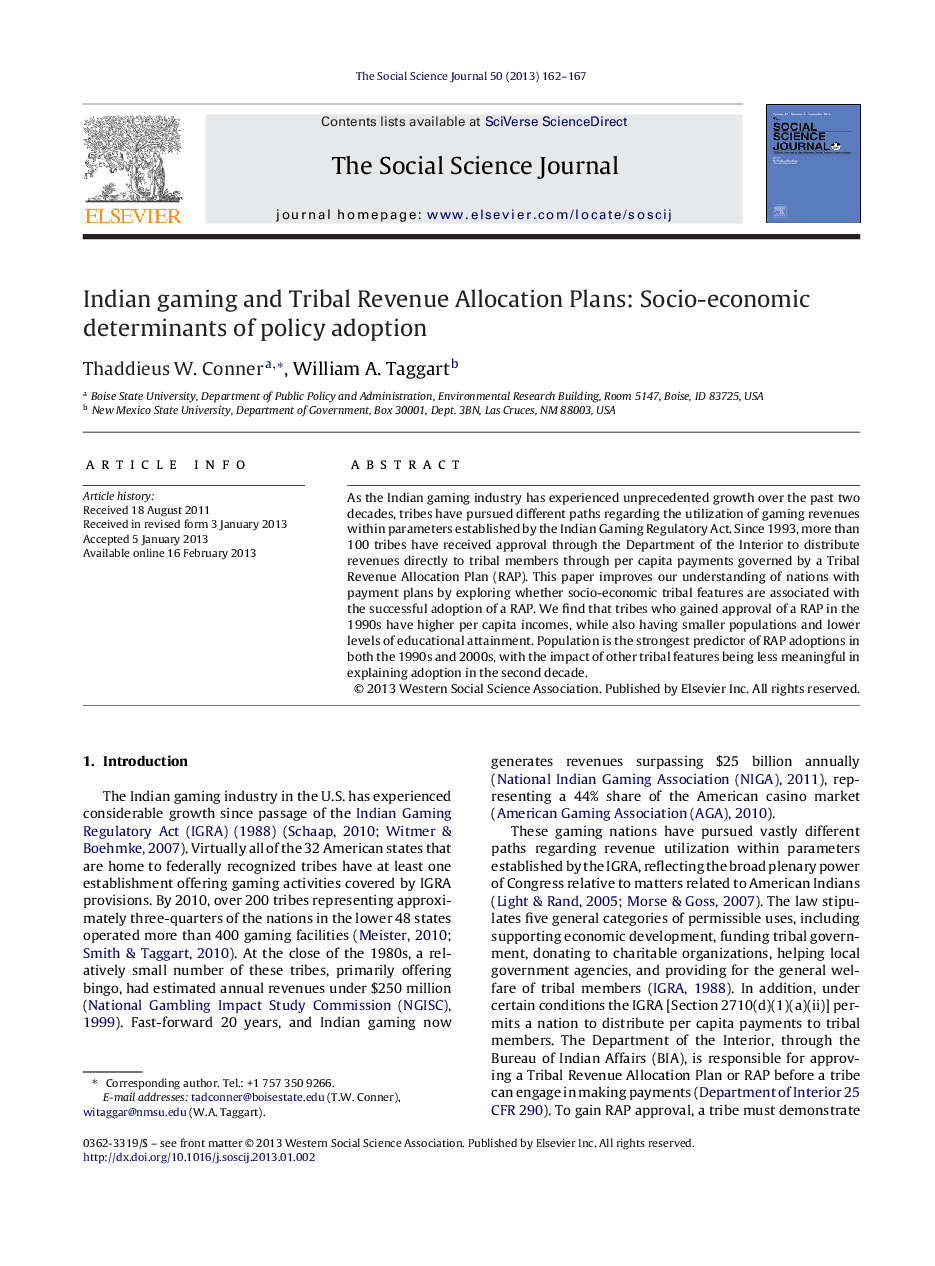| کد مقاله | کد نشریه | سال انتشار | مقاله انگلیسی | نسخه تمام متن |
|---|---|---|---|---|
| 140303 | 162677 | 2013 | 6 صفحه PDF | دانلود رایگان |

As the Indian gaming industry has experienced unprecedented growth over the past two decades, tribes have pursued different paths regarding the utilization of gaming revenues within parameters established by the Indian Gaming Regulatory Act. Since 1993, more than 100 tribes have received approval through the Department of the Interior to distribute revenues directly to tribal members through per capita payments governed by a Tribal Revenue Allocation Plan (RAP). This paper improves our understanding of nations with payment plans by exploring whether socio-economic tribal features are associated with the successful adoption of a RAP. We find that tribes who gained approval of a RAP in the 1990s have higher per capita incomes, while also having smaller populations and lower levels of educational attainment. Population is the strongest predictor of RAP adoptions in both the 1990s and 2000s, with the impact of other tribal features being less meaningful in explaining adoption in the second decade.
► This study looks at the adoption of Tribal Revenue Allocation Plans (RAPs).
► Tribes with higher incomes and lower levels of need are more likely to adopt RAPs.
► Tribes with smaller and more urban populations are more likely to adopt RAPs.
► Lower educational attainment is positively associated with RAP adoption.
► RAP adoption in 2000s partially driven by success of gaming operations in the 1990s.
► Time since signing a Class III gaming compact has no impact on RAP adoption.
Journal: The Social Science Journal - Volume 50, Issue 2, June 2013, Pages 162–167